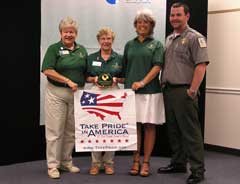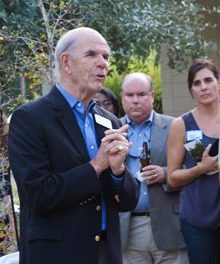 “Your work is going to fill a large part of your life, and the only way to be truly satisfied is to do what you believe is great work. And the only way to do great work is to love what you do. If you haven’t found it yet, keep looking. Don’t settle. As with all matters of the heart, you’ll know when you find it.”
– Steve Jobs
“Your work is going to fill a large part of your life, and the only way to be truly satisfied is to do what you believe is great work. And the only way to do great work is to love what you do. If you haven’t found it yet, keep looking. Don’t settle. As with all matters of the heart, you’ll know when you find it.”
– Steve Jobs
Â
Exhausted after a long day at work? Join the club. Working for a living has long been, well, a lot of doggone work. I’ll try here to look at the world of work through the lens of broad, unofficial groups that cover the human landscape. We can define three: stiffs, sweeteners, and sorcerers.
Most of us fall into the category of working stiffs, the essential folks who keep the lights burning, food on tables, roofs overhead, streets safe, etc. The U.S. Department of Labor now reports to Thomas Edward Perez. Each month his minions (stiffs?) release a statistical report summarizing the labor market. Last month, total nonfarm employment bumped up by 151,000—roughly the population of Kansas City. That left the unemployment rate at 4.9%. The number of long-term unemployed held at about 2 million. So far in 2016, mean hourly earnings have increased 2.4%. Attention penny watchers: the report dryly notes that “Average hourly earnings of private-sector production and nonsupervisory employees increased by 4 cents to $21.64 in August.” Year after year go these missives. Our tax pennies—and megadollars– at work.
The total U.S. labor force is slightly over 159M. About half the total population. While I’m unaware of firm statistics on this, let’s presume that 75% or so of the workforce consists of working stiffs. The term might sound more dismissive than it really is, since we need these people. Desperately. The question is, are they having any fun? Deeply satisfied? Pleasantly challenged? Good heavens, are they self-actualized?
Mostly no, but hang on. David G. Allan wrote an interesting article for CNN, “Fall in Love With a Job You Don’t Even Like.” Sounds maybe like dreamy mush, but it’s actually encouraging. Allan contends, in line with data from The Conference Board research group, that most of us don’t like our jobs (stiff with boredom or stress, anyone?). Solutions are close at hand, however, at least for those willing to work for them. The efficacy of this work rests on humans’ innate desire for control over their daily lives, positive daily connections with others, and joy and meaning.
One guiding principle of Allan’s: the encouraging idea that job problems don’t necessarily center on the job itself but more likely revolve around the way we define and manage it. We’re encouraged, where necessary, to “hack” our own jobs. One starts by creating three lists: (1) things we like about our jobs, (2) hassles and headaches associated with those jobs, and (3) [yikes?] “things you’d like to be able to do in your job that you currently don’t – even if they have nothing to do with what you’re paid to do.”
Â
We’re urged to take a whack at the second and third lists, starting perhaps with easy wins or ‘low hanging fruit.’ Set up an exercise room, perhaps, or lobby for being allowed to bring your dog to work (many companies have tried this successfully). Streamlining paperwork is a perennially fine candidate, assuming there’s no downside for customers.
Â
Then we have the possibilities associated with deriving more enjoyment from our “work neighbors.” Do them little favors such as, for instance, handling a difficult call they would rather avoid. Organize a company softball team or club focused on common interests. Maybe set up a football pool. Regular group lunches out at nearby eateries can be a winner. The possibilities are endless and can often create a self-perpetuating cycle of improved morale.
Â
Finally, speaking of lunch, Allan gets to the big enchilada, job “meaning.” The job itself may remain the same, but our framing of it is amenable to change. (A distant relative, strategically, of cheerfully referring to hotdogs as a “tube steaks.”) A compelling example involves hospital workers responsible for inherently distasteful tasks such as removing waste (think bed pans, perhaps) who reframe the surrounding set of tasks. In this scenario, an employee comes to think of himself more as a caregiver or ambassador to the hospital. As Allan puts it, “By shifting the paradigm around their job and adding meaning and purpose, the hospital staff made the tougher parts of their job tolerable, even important, and changed their behavior to support that purpose.”
I like to call Allan’s job transformers “sweeteners” since in effect they sweeten pots. So combined with the “stiffs” noted earlier, we’ve now swept up the overwhelming majority of the labor force. Who have we left out?
I’ve taken the liberty of calling them “sorcerers.” The dictionary defines sorcerers as people who claim or are believed to have magical powers . . . wizards. Here, they are the all too rare men and women who transcend normal talent or skill boundaries. As a historical referent, recall the OSS (Office of Strategic Services), the precursor of today’s CIA. As Douglas Waller wrote in Disciples,
“[future CIA director Bill] Casey marveled at the diverse assemblage [founder Bill] Donovan had recruited… the best and brightest from academia, the scientific community, finance, law, … along with an assortment of circus stars, race car drivers, safe crackers, lock pickers, forgers, break-in artists, and an occasional Mafia thug—most of whom appeared to have little more experience in espionage or sabotage than he did.”
There may be a thousand or so “sorcerers” in the U.S., perhaps 10 or even a hundred times this number. It’s hard to be exact but the more the merrier. Their occupations are all over the map, as Waller suggests, but I feel compelled to single out, for example, top level software developers, astrophysicists, cancer researchers, DNA manipulators and megastar athletes such as Simone Biles.
Not to mention extraordinary painters, sculptors, writers, filmmakers and other transcendent artists. Including musicians. There are far too many to list here, though one truly special musician comes quickly to mind… Sonny Landreth. He’s white, 65, speaks English and there end any similarities with me. I ‘met’ him virtually via his fellow sorcerer Eric Clapton’s Crossroads Guitar Festivals. Landreth, a bluesman, is a grand master of the electric slide guitar. Along with his musical gifts he brings humility to the table, claiming on a fascinating instructional video that “I’m still learning, so bear with me.” (https://www.youtube.com/watch?v=rmhir9D6IVQ)
A sorcerer subset: super-virtuosos whose sheer talent takes your breath away. The lucky few who would never do anything else. They are their work. Meryl Streep comes to mind. Doris Kearns Goodwin or Laura Hillenbrand. Stephen Hawking.
If I may close with a suggestion . . . while precious few of us are destined to be sorcerers, we can all support them. Take a timeout to attend a concert, donate to a foundation, visit a gallery, maybe just recommend a wizard or two to a friend. Jimi Hendrix began life with few advantages, but with a $5 acoustic guitar he was off to the rock stratosphere.
Maybe consider it your “second” job, one like no other. It’s nice work and yes, you can get it.






